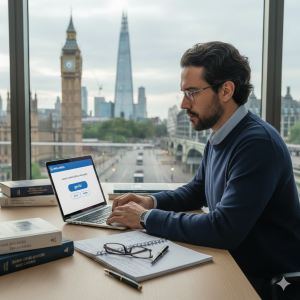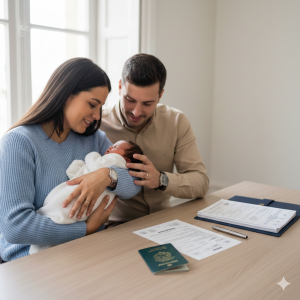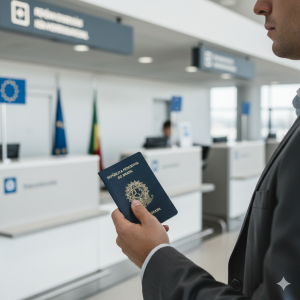Are you a foreigner living in Brazil and need medical care?
Good news: Brazil’s public healthcare system (SUS) is available to everyone, including foreigners — regardless of nationality, visa status, or immigration situation.
The Sistema Único de Saúde (SUS) is one of the largest public healthcare systems in the world. It’s universal, tax-funded, and entirely free of charge, covering everything from emergency care and vaccines to routine checkups and even organ transplants.
Whether you’re in Brazil temporarily or building a new life here, you have the right to use SUS services, just like any Brazilian citizen.
What does the law say?
Brazil’s Migration Law (Law nº 13.445/2017) guarantees that foreigners cannot be denied access to healthcare based on their status. This principle is reinforced by the Federal Constitution, which declares that health is a right of all people — without exception (Articles 5 and 196).
That means:
- Foreigners with temporary or permanent visas are covered;
- Refugees and asylum seekers are covered;
- Even individuals without legal documentation must be assisted.
Brazilian courts have also confirmed that denying emergency medical care to anyone may constitute a crime, especially in situations involving risk to life or physical integrity.
How can foreigners access SUS in practice?
You can visit a public clinic (UBS), emergency care unit (UPA), or public hospital. Ideally, bring a form of identification, such as:
- A valid passport;
- Foreign ID or consular document;
- National Foreigner Registry (RNE) or Police Federal protocol.
If possible, register for a SUS Card (Cartão SUS) at your nearest clinic — it’s free and helps with scheduling appointments.
But don’t worry:
You will not be denied emergency care even if you have no documents.
Is it really free?
Yes. SUS services are 100% free.
- You do not pay anything during the visit;
- You won’t receive a bill later;
- You don’t need insurance to access care.
This is a major difference from the U.S., where even emergency services at public hospitals can result in thousands of dollars in surprise bills. In Brazil, the public healthcare system is a constitutional right, not a commercial service.
What about transplants?
In 2024, Brazil expanded equal access to the national transplant list for foreigners with legal residency (temporary or permanent). This came after a legal victory by the Federal Public Defender’s Office (DPU).
The decision reinforced that foreigners must be treated equally when it comes to life-saving procedures — a milestone for universal healthcare in Brazil.
Challenges at the borders and local success stories
Despite legal protections, Brazil still lacks centralized guidance for healthcare access in border areas, where migration is constant. This creates uncertainty for both local governments and patients.
Still, some regions are setting examples: in Brasília, public health teams regularly visit migrant communities, offering free vaccines, orientation on available services, and non-discriminatory care, even for those without documents.
What about private health insurance? How does it compare to the U.S.?
In addition to SUS, many foreigners choose to buy private health insurance in Brazil, which provides faster access to specialists and elective procedures, especially in large cities.
Here’s a quick comparison:
| Feature | Private Plans in Brazil | Health Insurance in the U.S. |
| Monthly cost (average) | R$ 400–R$ 2,000 (US$ 80–400) | US$ 500–1,500+ |
| Deductibles | Low or moderate | High deductibles and copays |
| Wait time for specialists | Short (a few days) | Often long, even with insurance |
| Emergency coverage | Included (varies by plan) | May not be fully covered |
| Hospital network | Broad in urban areas | Highly dependent on provider network |
In the U.S., health insurance is essential and extremely costly. In Brazil, it’s common to combine public healthcare (SUS) with a basic private plan for added convenience — especially for scheduled procedures.
Key Takeaways
- Foreigners can use the SUS, even if your visa or documentation isn’t finalized;
- Emergency care must always be provided, free of charge;
- Registering for the SUS Card helps organize your care;
- A private plan may be helpful, but is not required for access to public services.
Need legal guidance?
At BFA, we provide legal assistance to foreigners throughout their stay in Brazil — including help with accessing public services, regularizing immigration status, and understanding your rights.
If you want expert, culturally sensitive legal support tailored to your international life in Brazil, get in touch with our team.











